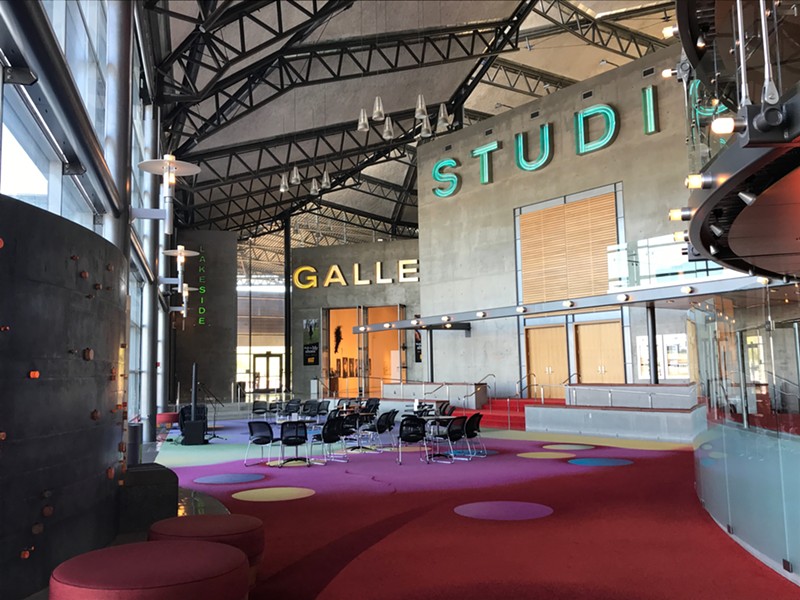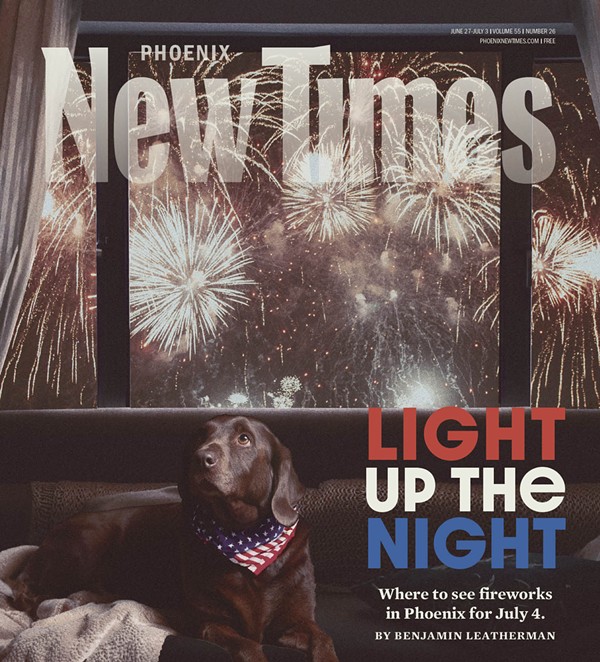Tempe’s new art tax may be in peril because of changes to the Arizona Constitution.
In November, voters approved Proposition 126, which amends the constitution to prohibit new or increased taxes on services. Now, neither the state, nor counties, cities, or towns will be able increase taxes on services beyond those already in place on December 31, 2017.
Tempe voters approved a sales-and-use tax for arts and culture in November 2018. Approved by 68 percent of voters, the one-tenth of 1 percent tax helps to fund Tempe art facilities and programs, including Tempe Center for the Arts. It replaces a tax for the same amount approved in 2000, which sunsets on December 31, 2020. The new tax takes effect on January 1, 2021.
But Tempe officials say Proposition 126 could change that. City officials issued a related statement on December 14 that indicates they may take the issue to court.
“The Tempe City Council has approved moving forward with exploring pending legislation against the State of Arizona to refute the legality of Proposition 126,” it reads in part.
The proposition didn’t define services, according to Ken Strobeck, executive director for the League of Arizona Cities and Towns. “The proposition has no definition at all of what ‘services’ is,” Strobeck says. “There are rumors that people are looking into challenging taxes on things they want to call services.”
That has several cities exploring their options, including legal action.
Mesa is challenging the legality of Proposition 126, according to a written statement released on December 11, which references the one-quarter of 1 percent sales tax Mesa voters approved in November for police, fire, and medical personnel and equipment. "Proposition 126 creates multiple issues and ambiguities that endanger the ability of the City of Mesa to collect and retain the Public Safety sales tax," the city's statement reads in part.
Scottsdale is pursuing legal options, as well. Scottsdale’s City Council voted on December 11, to hire Ballard Spahr to “provide legal services relating to the effect of Proposition 126 on the City and further authorizing the City to participate in court proceedings if necessary to establish its effect.”
Ballard Spahr is a Philadelphia-based law firm with offices in Phoenix. A representative declined Phoenix New Times’ request for details about which clients it is representing in this matter, or related litigation it has filed or plans to pursue.
Not everyone opposes Proposition 126. Its biggest supporters include the Arizona Association of Realtors, which says lower taxes fuel economic growth. “The possibility of a tax on services could put this economic expansion in jeopardy,” a representative wrote in a December 17 email to New Times.
“Proposition 126 was approved by over 1.4 million voters who agree that Arizona cities should not impose any new sales tax on services or increase any current tax on services,” they wrote, in part. They also cited several examples of services, including health and dental care, veterinarian care, haircuts, home repairs, and child care.
But that doesn't address concerns that "services" could be applied to other activities.
Clearly, Tempe and other cities are wondering how the word "services" will be interpreted, and what a loose interpretation could mean for things like arts, education, and public safety. And the League of Arizona Cities and Towns is keeping watch on what unfolds.
"As it moves down the track, if it’s acted on and we’re forced into it, we will get involved,” Strobeck says.
[
{
"name": "Air - MediumRectangle - Inline Content - Mobile Display Size",
"component": "18478561",
"insertPoint": "2",
"requiredCountToDisplay": "2",
"watchElement": ".fdn-content-body",
"astAdList": [
{
"adType": "rectangle",
"displayTargets": "mobile"
}
]
},{
"name": "Editor Picks",
"component": "16759093",
"insertPoint": "4",
"requiredCountToDisplay": "1"
},{
"name": "Inline Links",
"component": "17980324",
"insertPoint": "8th",
"startingPoint": 8,
"requiredCountToDisplay": "7",
"maxInsertions": 25
},{
"name": "Air - MediumRectangle - Combo - Inline Content",
"component": "16759092",
"insertPoint": "8th",
"startingPoint": 8,
"requiredCountToDisplay": "7",
"maxInsertions": 25,
"watchElement": ".fdn-content-body",
"astAdList": [
{
"adType": "rectangle",
"displayTargets": "desktop|tablet"
},{
"adType": "rectangle",
"displayTargets": "desktop|tablet|mobile"
}
]
},{
"name": "Inline Links",
"component": "17980324",
"insertPoint": "8th",
"startingPoint": 12,
"requiredCountToDisplay": "11",
"maxInsertions": 24
},{
"name": "Air - Leaderboard Tower - Combo - Inline Content",
"component": "16759094",
"insertPoint": "8th",
"startingPoint": 12,
"requiredCountToDisplay": "11",
"maxInsertions": 24,
"watchElement": ".fdn-content-body",
"astAdList": [
{
"adType": "rectangle",
"displayTargets": "desktop|tablet"
},{
"adType": "rectangle",
"displayTargets": "desktop|tablet|mobile"
}
]
}
]












